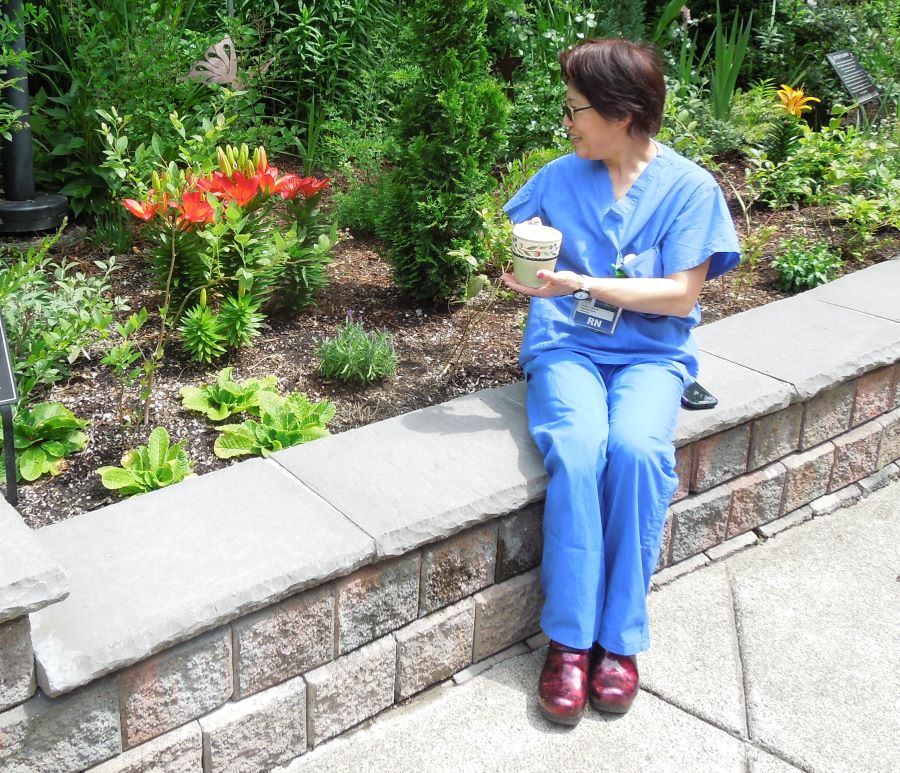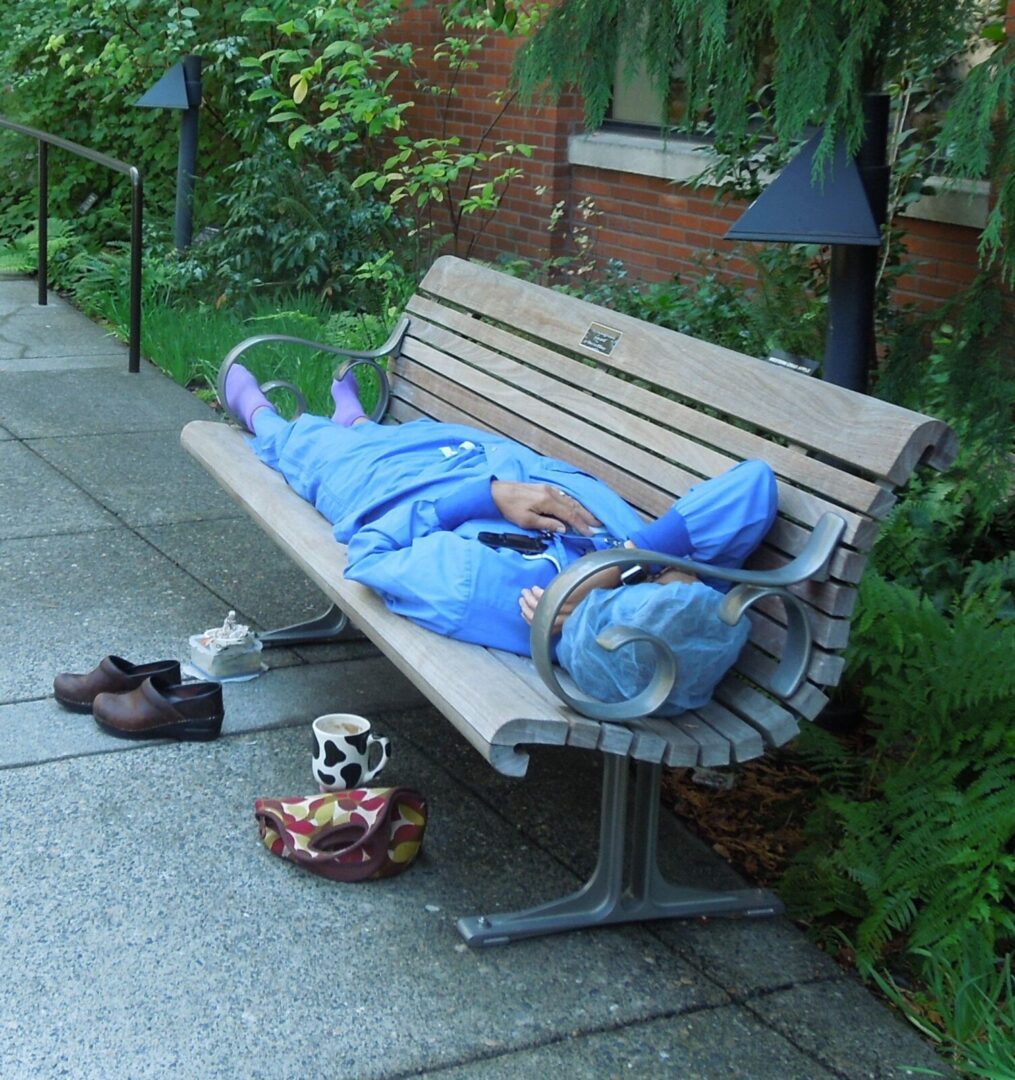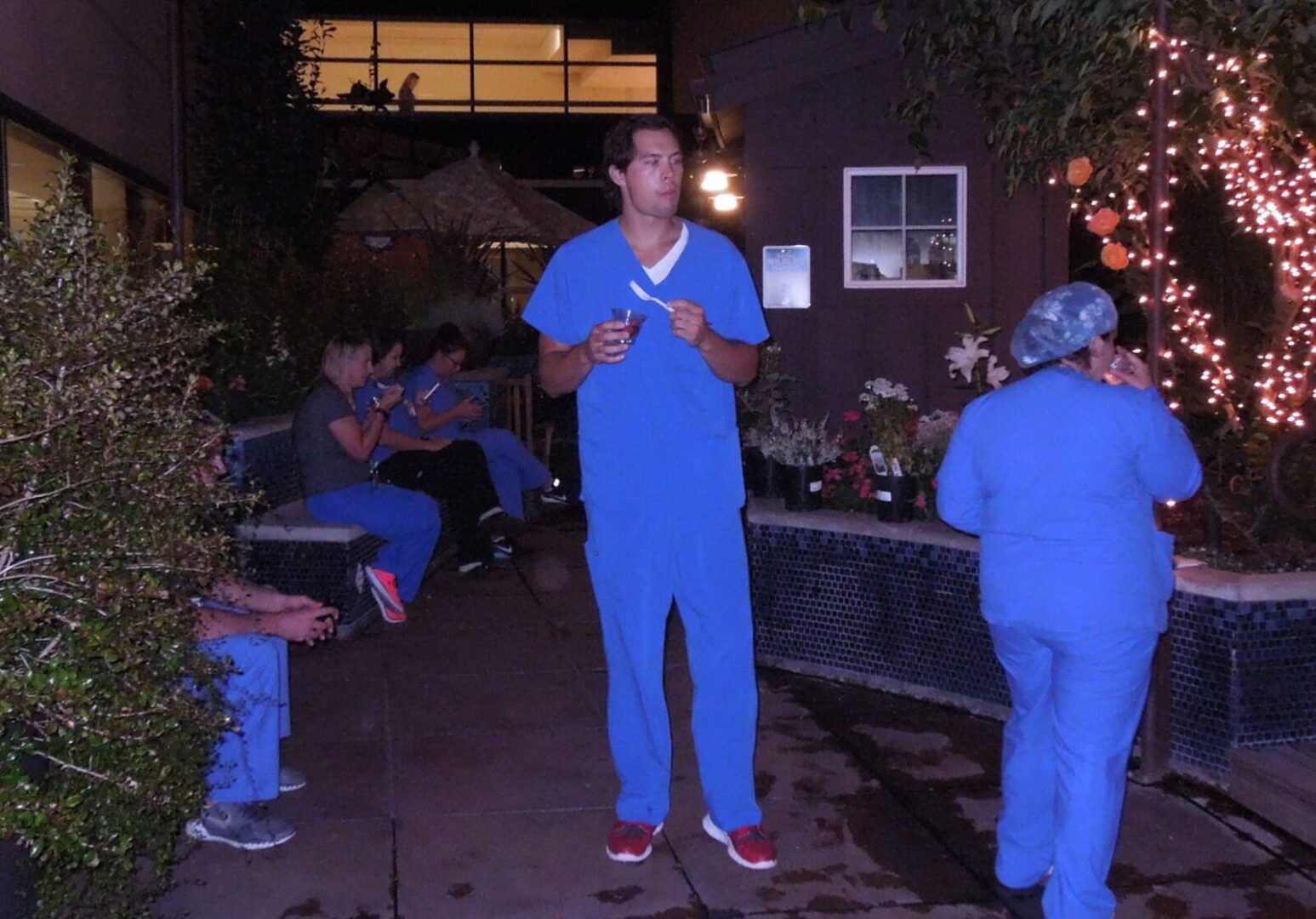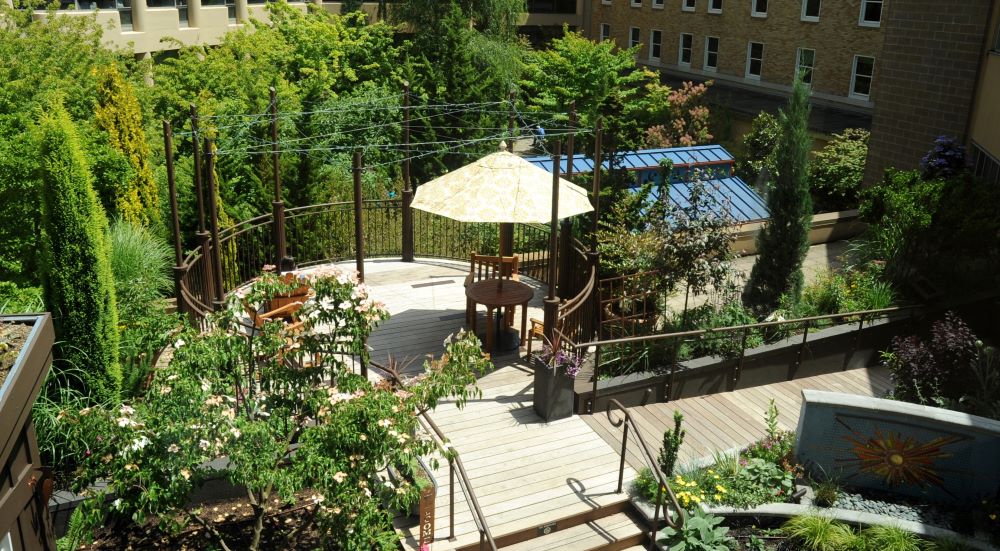Give Nurses a Break in the Garden: It Could Solve Burnout

By Linda Lee
Want to keep nurses happy in their work and keep them from leaving the profession? Gardens can cure the nursing shortage in the nation’s hospitals and even overcome bullying or mistreatment from patients. An award-winning study of nurses in a Portland hospital published at the end of 2018 says that a 30-minute break in a garden did a great deal more to relieve stress and restore nurses’ equilibrium than the same time spent in a break room.
It was published in “The American Journal of Critical Care” and “Health Facilities Management” magazine.
There are close to four million nurses in the United States, and according to the Bureau of Labor Statistics, another million need to enter the work force by 2020 to meet the demand. It is far better to keep nurses from leaving the profession than to recruit and train new nurses.
Some nurses do age out. The population is getting older (10,000 people turn 65 every day). But another reason nurses leave the profession is stress and burnout. Registered nurses make, on average, $68,500 a year, more if they have a specialty. But shift work can make for ruinous hours; the demands in attention are high and nonstop.

In an interview in 2017, Roger Ulrich, one of the authors of the new study, said, “turnover rates in hospital healthcare, nationally, are unacceptably high, because of the stress, and this in turn degrades the quality of care received by patients.”
The study, awkwardly titled “Impact of Nurses Taking Daily Work Breaks in a Hospital Garden on Burnout,” used the Maslach Burnout Inventory on 29 nurses who were followed at a hospital in the Legacy system of hospitals in Portland.
The study lasted for 13 weeks. The gardens the nurses were spending time in were not sterile plazas; they were planted on the 30/70 ratio. Seventy percent of the area was covered with plants, and only thirty percent with walkways, benches, tables, chairs and play equipment for children.
The gardens, which are open 24 hours a day, have four-season plantings, including winter-blooming camellias, which do well in the mild Portland climate. The bushes, trees and flowers attract birds and butterflies during the day, and are popular at night, especially for night staff and burn victims, who cannot tolerate sunlight.

Flowers with heavy scents are avoided because cancer patients undergoing chemotherapy are sometimes intolerant of scents, according to Teresia Hazen, the coordinator of gardens at the Legacy Health System, “and we don’t plant ivy because it attracts rats.”
Nurses were divided into two groups, one taking breaks for six weeks in the hospital garden, the other indoors in a pleasant break room. Then both groups were given a week of free choice, when they could do what they wanted fort heir 30-minute break.
After that the two groups switched. Incidentally, smoking is not allowed in the garden, so that had no effect on the nurses’ attitudes about taking a break outdoors. Improvement in feelings of de-personalization and emotional exhaustion was significant for both groups when they took breaks in the garden.
Research says that 50 percent of nurses report being bullied on the job, although they don’t say whether that is by patients or other hospital staff. Being bullied leads to feeling depersonalized.
On the Maslach Inventory those are significant indicators of the risk of burn out. Gardens give people back a feeling of wholeness, of being in touch with nature and themselves. It offers a calming break, a moment to collect oneself, to feel human again.

According to Hazen, “Whether it’s mental health, or physical health, the gardens area big part of health at Legacy.” Doctors at the Legacy hospitals, one of whose gardens is shown above, often write orders for the nurses to “take this patient out into the garden,” which sometimes means rolling a bed outside. Doors to the garden are wide enough for beds.
Perhaps with the results of this study, doctors’ orders will be … “and stay out there a few minutes yourself.”
